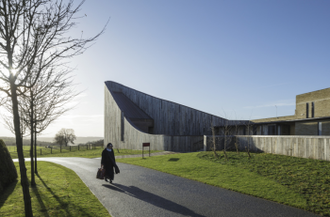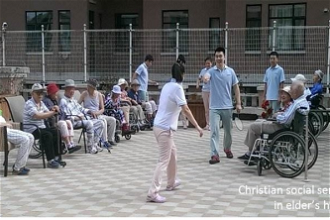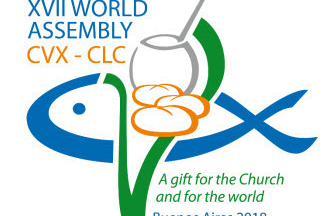Contemplatives study new Vatican rules governing their existence

Stanbrooke Abbey Church - image Tim Crocker
Source: CoR
The Conference of Religious joined enclosed nuns from across the UK and Ireland who gathered at Stanbrook Abbey in North Yorkshire for a three day gathering to examine a new Vatican document outlining rules governing their monastic structure and way of life.
The conference was led by two canon lawyers, Sr Scholastika Haring, a Benedictine from Germany and Fr Luke Beckett, a monk of Ampleforth Abbey.
The document, 'Cor Orans' (Praying Heart) provides instructions on how to apply Pope Francis' 2016 Apostolic Constitution - 'Vultum Dei Quaerere' ('Seek the Face of God') - addressed to Catholic women religious in contemplative communities. In it, the Pope calls for changes to be implemented in 12 diverse areas.
There are almost 38,000 cloistered nuns in the world today and the document provides precise guidelines regarding all the practical, administrative, legal and spiritual aspects pertaining to the founding and running of monasteries for contemplative nuns.
These include detailed specifications regarding the autonomy of monasteries, relations with the bishop of the diocese in question, rules and regulations regarding "the separation of the nuns from the outside world," means of communication, the various forms of cloister including "papal enclosure" and formation.
'Cor Orans' begins by saying: "The contemplative life of nuns, rooted in the silence of the cloister, from its beginnings through a mysterious apostolic fruitfulness enriches the Church of Christ with fruits of grace and mercy." Silence and prayer were central elements of the conference at Stanbrook Abbey, interspersed with intensive input from the two canon lawyers.
The conference took place within and around the normal structures of rhythmic prayer of a contemplative setting. So, for instance, the schedule for the middle day was as follows: Vigils at 0600, Lauds at 0730, Mass at 0900, two sessions in the morning, then Midday Office at 1230, two sessions in the afternoon, followed by questions. Vespers at 1800, Compline at 2015, then silence.
Certain topics generated intensive discussion. Such as how long formation should be before nuns make their solemn vows. Under Cor Orans it's proposed that the period is extended for up to nine years. But concerns were expressed around this, with one nun pointing out that women joining congregations these days were often older than in the past and came with professional qualifications, careers to decide upon and properties to deal with, so extending the time before which they could become fully professed was problematic: "Women joining nowadays have much more mature commitments than we had when we were young."
Canon lawyer, Fr Luke Beckett OSB, probed the concept of what it means to have 'separation from the world.' He deployed some concepts to illustrate what this really means: "'city on the hilltop / the heart constantly turned towards the Lord / seeking the face of God." He defined the cloister as quite simply, a space that is for the nuns only and a positive space to create a family atmosphere: "The way that separation happens is not ideological, it's a space to be protected." Acknowledging the famed Benedictine hospitality, Fr Luke noted the 'tension' between preserving the cloister and inviting guests in; "It's a source of fraternal tension that rivals the liturgy!" he quipped.
When 'Cor Orans' was released earlier this year, there was huge media interest in the rules governing the use of modern, social communications. The document warns that "it is possible to empty contemplative silence when the cloister is filled with noises, news, and words. Recollection and silence are of great importance for the contemplative life." Guidance was offered that the moderns methods of communication (Facebook, twitter, etc.,) must be used with "sobriety and discretion" so that they "do not become occasions for wasting time or escaping from the demands of fraternal life in community, nor should they prove harmful for your vocation, or become an obstacle to your life wholly dedicated to contemplation." One nun made the point that the internet is a vital modern means of a community developing its charism, for instance, her community has done a lot of work with the concepts raised in the environmental encyclical, 'Laudato Si' - thanks to what they've been able to read online.
Fr Luke said what it boiled down to was "not running away from the cloister to surf the net" and said access to the means of social communication was about trying to balance the good things with the negative aspects of social media and keeping the right balance. But he acknowledged it can be difficult for the younger generation, "who are surgically attached to their phones!" "There has to be some inter-generational discussion about embodying your discernment and coming together around values that are commonly shared; we all have to learn to be good stewards," he advised.
Ultimately, said Fr Luke, there has to be reflection around the question of what contemplative life is. "Consecrated life," he said, "is a passionate love for the Lord, seeking the face of God, being co-workers of God."
LINK
Conference of Religious - www.corew.org

















